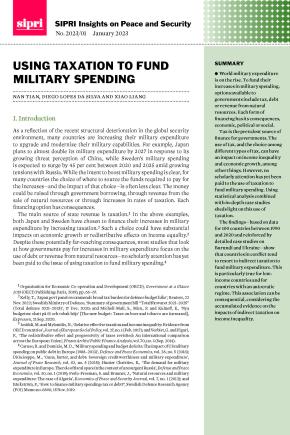Using Taxation to Fund Military Spending

World military expenditure is on the rise. To fund their increases in military spending, options available to governments include tax, debt or revenue from natural resources. Each form of financing has its consequences, economic, political or social.
Tax is the prevalent source of finance for governments. The use of tax, and the choice among different types of tax, can have an impact on income inequality and economic growth, among other things. However, no scholarly attention has yet been paid to the use of taxation to fund military spending. Using statistical analysis combined with in-depth case studies sheds light on this use of taxation.
The findings—based on data for 100 countries between 1990 and 2020 and reinforced by detailed case studies on Burundi and Ukraine—show that countries in conflict tend to resort to indirect taxation to fund military expenditure. This is particularly true for low-income countries and for countries with an autocratic regime. This association can be consequential, considering the accumulated evidence on the impacts of indirect taxation on income inequality.
I. Introduction
II. How is military spending funded?
III. A multivariate regression analysis of financing military spending through taxation
IV. Case studies
V. Conclusions


